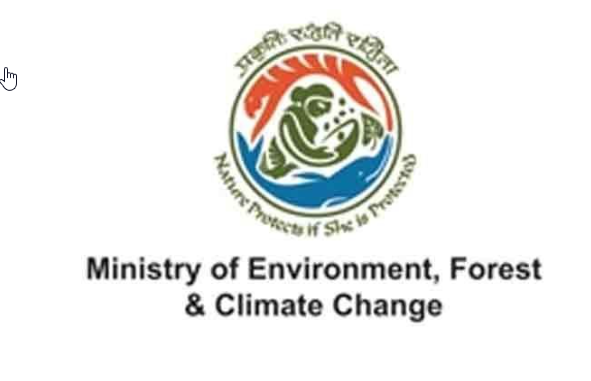Ministry of Environment Forests and Climate Change
The Ministry of Environment, Forests and Climate Change (MoEFCC) is a ministry of the Government of India responsible for planning, promoting, coordinating, and overseeing the implementation of India’s environmental and forestry policies and programmes. The ministry is also the nodal agency for the United Nations Environment Programme (UNEP), South Asia Co-operative Environment Programme (SACEP), and the International Centre for Integrated Mountain Development (ICIMOD).
History
The Ministry of Environment, Forests and Climate Change has its roots in the Department of Environment, which was established in 1980 under the Ministry of Science and Technology. In 1985, the Department of Environment was upgraded to a full-fledged ministry, known as the Ministry of Environment and Forests (MoEF). In 2014, the ministry was renamed the Ministry of Environment, Forests and Climate Change to reflect its expanded focus on climate change issues.
Objectives and Functions
The primary objectives and functions of the Ministry of Environment, Forests and Climate Change include:
- Formulating and implementing policies and programmes for the conservation of the country’s natural resources, including forests, wildlife, biodiversity, and ecosystems.
- Promoting sustainable development and environmental protection through the prevention and control of pollution, waste management, and the promotion of clean technologies.
- Coordinating and overseeing the implementation of India’s climate change policies and programmes, including mitigation and adaptation strategies.
- Administering various environmental laws and regulations, such as the Environment (Protection) Act, 1986, the Forest (Conservation) Act, 1980, and the Wildlife (Protection) Act, 1972.
- Representing India in international forums and negotiations related to the environment, forests, and climate change, such as the United Nations Framework Convention on Climate Change (UNFCCC) and the Convention on Biological Diversity (CBD).
Organizational Structure
The Ministry of Environment, Forests and Climate Change is headed by a Union Cabinet Minister, who is assisted by a Minister of State. The administrative head of the ministry is the Secretary, who is supported by Additional Secretaries, Joint Secretaries, and other officers.
The ministry has several divisions and subordinate offices, including:
- Environment Wing: Responsible for environmental policy, planning, and coordination.
- Forest Wing: Responsible for forest conservation, afforestation, and wildlife protection.
- Climate Change Wing: Responsible for coordinating India’s response to climate change and implementing related policies and programmes.
- Central Pollution Control Board (CPCB): The national pollution control agency responsible for implementing and enforcing environmental laws and regulations.
- Forest Survey of India (FSI): Responsible for conducting surveys and assessments of India’s forest resources.
- Botanical Survey of India (BSI) and Zoological Survey of India (ZSI): Responsible for conducting surveys and research on India’s flora and fauna, respectively.
Major Initiatives and Programmes
The Ministry of Environment, Forests and Climate Change has launched several initiatives and programmes to address environmental challenges and promote sustainable development, including:
- National Action Plan on Climate Change (NAPCC): Launched in 2008, the NAPCC outlines India’s strategy for mitigating and adapting to climate change through eight national missions, covering areas such as solar energy, energy efficiency, sustainable agriculture, and water conservation.
- Green India Mission: Launched in 2014 as part of the NAPCC, the mission aims to increase India’s forest cover and enhance ecosystem services through afforestation, restoration, and conservation activities.
- National Clean Air Programme (NCAP): Launched in 2019, the NCAP is a comprehensive strategy to reduce air pollution in 102 Indian cities by 20-30% by 2024, compared to 2017 levels.
- Swachh Bharat Mission (Clean India Mission): Launched in 2014, the mission aims to achieve universal sanitation coverage, improve cleanliness, and eliminate open defecation in India by 2019.
- Compensatory Afforestation Fund Management and Planning Authority (CAMPA): Established in 2009, CAMPA manages the funds collected from user agencies for compensatory afforestation and other forest conservation activities.
International Cooperation
The Ministry of Environment, Forests and Climate Change actively engages in international cooperation and negotiations related to the environment, forests, and climate change. India is a party to several multilateral environmental agreements, such as the UNFCCC, the Kyoto Protocol, the Paris Agreement, the CBD, and the United Nations Convention to Combat Desertification (UNCCD).


